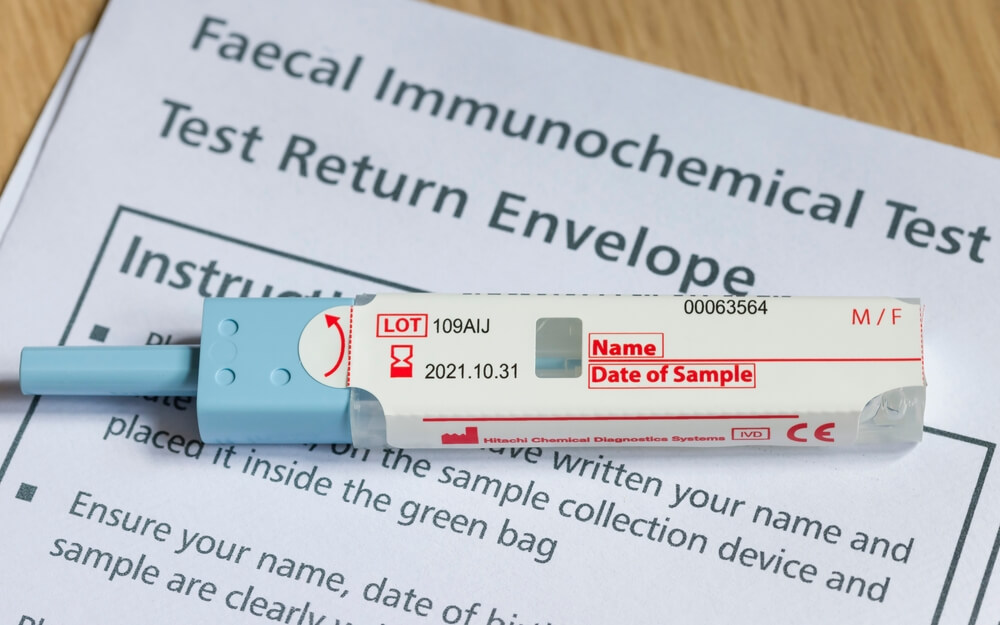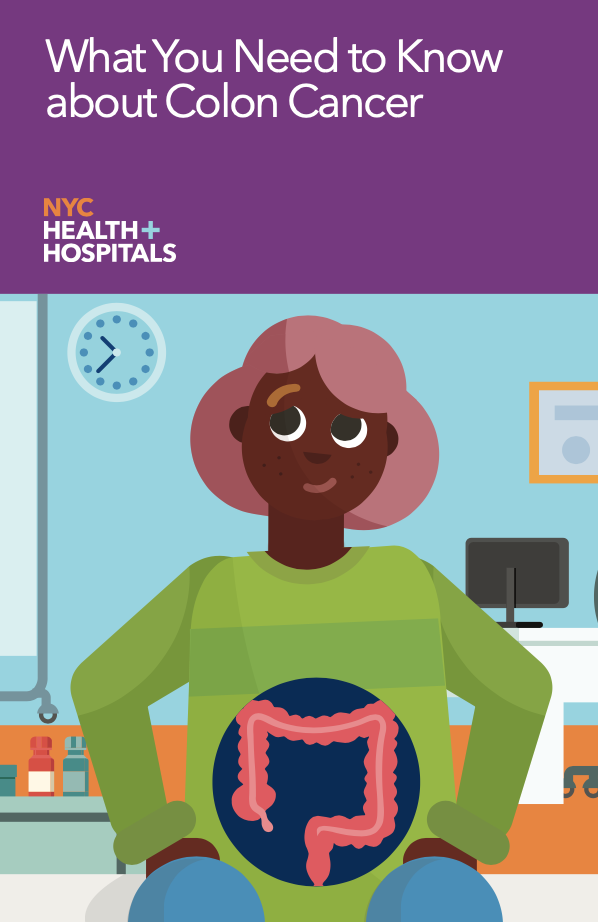Colon cancer is the second leading cause of cancer death in the United States. The good news is that screenings can prevent colon cancer or help find it early, when it is easier to treat.
- Nine out of 10 people survive early-stage colon cancer.
- Only one out of 10 survive late-stage cancer.
What is colon cancer?
When small growths (called polyps) form in the inner walls of the colon or rectum, they can grow into cancer.
When should I get screened?
If you are 45 or older, talk to your doctor about colon cancer screening, even if you feel healthy. If you are at high risk for colon cancer, your doctor may recommend that you start regular testing before you turn 45.
Speak to your primary care provider, or call 1-844-692-4692 to make your appointment today.
What are colon cancer symptoms?
Most people with polyps and colon cancer have no symptoms. Tell your doctor if you have:
Download brochure
Other languages:
Español | Shqip | العربية | বাংলা | Français | Kreyòl Ayisyen | हिंदी | 한국어 | Polski | Русский | 简体中文 | 繁體中文 | اُردُو
- Increased bowel gas
- Pain in the stomach or abdomen
- Blood in your stool
- Weight loss
- Changes in the thickness or shape of stools, especially narrowing
- New constipation or diarrhea
How do I get screened for colon cancer?
There are many ways to get screened for colon cancer. The top two are a stool test, called FIT, or colonoscopy.
What is FIT?
FIT, or Fecal Immunochemical Test, is a stool test done at home that looks for blood in the stool.

- You will need to bring the stool sample to your doctor’s office or mail it in to a lab for testing.
- The stool test should be done every year, as long as your results are normal.
- If blood is found in your sample, you might need a colonoscopy.
What is a colonoscopy?
Colonoscopy is a procedure where a doctor inserts a flexible lighted tube into your rectum to check for signs of cancer. The doctor can find and remove most small growths and some cancers.
What can I expect if my doctor recommends a colonoscopy?
Your doctor will give you instructions on how to prepare for your colonoscopy. It is very important that you follow the instructions, or you may have to reschedule your colonoscopy. Your doctor may tell you to:
- Not eat certain foods for 2-5 days before your colonoscopy
- Not take certain medications
- Take an additional medication or supplement
- Only drink clear liquids for 24 hours before your procedure
Talk to your doctor if you have any concerns or questions about the preparation steps for your colonoscopy. If you miss any of the steps, call your doctor’s office as soon as possible to let them know.
How can I lower my chances of getting colon cancer?

Living a healthy lifestyle may reduce your chances of getting colon cancer.
- Limit processed meat in your diet.
- Watch your weight.
- Exercise regularly.
- Stop smoking.
- Limit alcohol use.
Where do I get screened for colon cancer?
If you are 45 or older and have not been screened for colon cancer, speak to your primary care provider, or call 1-844-692-4692 to make your appointment today.
